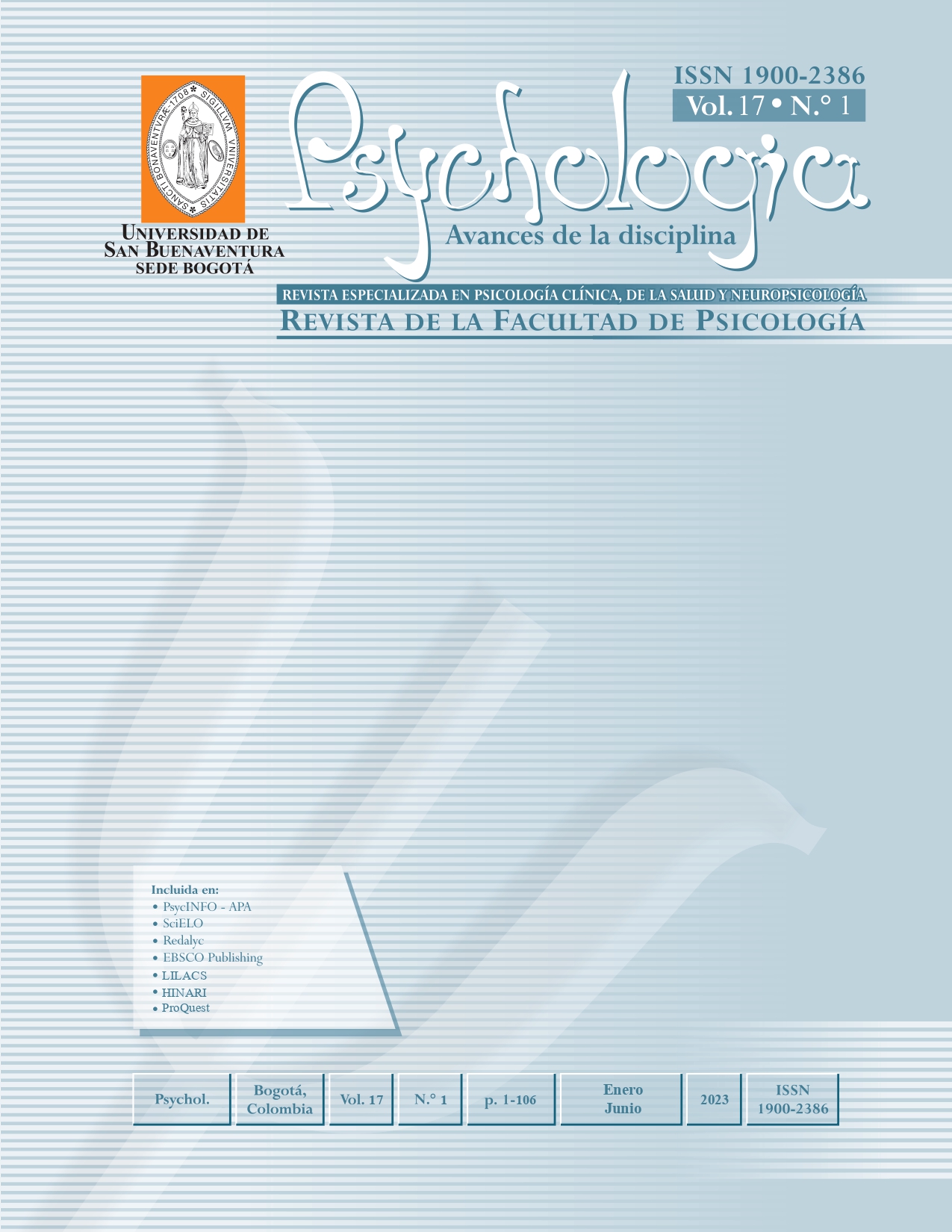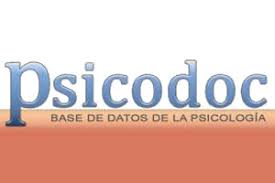This journal provides open, immediate access to its contents, based on the principle that offering the public free access to research helps to promote a higher global exchange of knowledge.
As such, all journal articles are published under a Creative Commons Attribution-NonCommercial-ShareAlike 4.0 International License (CC BY-NC-SA), by which commercial use of the original work or its possible derived works is not allowed, and the distribution thereof must be done with the same license elements regulating the original work.
http://creativecommons.org/licenses/by-nc-sa/4.0/
Abstract
The objective of this study was to determine the relationship between irrational beliefs and depressive symptoms in university students of Psychology in Honduras. A quantitative approach, a descriptive-correlational scope and a non-experimental correlational cross-sectional design was used. The sample was 257 university students of Psychology from two Honduran universities. For the collection of data, the Irrational Beliefs Test and the Beck-II Depression Inventory were applied. The main irrational beliefs manifested by the students are guilt, high self-expectations, influence of the past and avoidance of problems, and about a third of the students suffer from moderate to severe depressive symptoms. Male students, under 31 years, attending a private university and who are single are those who have the highest irrational beliefs and higher levels of depression, but there is only a statistically significant difference between the age group and depressive symptomatology. In addition, there is a statistically significant relationship between irrational beliefs and four of its dimensions (need for approval, high self-expectations, guilt and influence of the past) with depressive symptoms. It is urgent that university authorities develop programs and institutional services that prevent and promote mental health, to reduce pathological mental processes that can trigger problems such as suicide
References
Ashraful Islam, M., Yun Low, W., Ting Tong, W., Wan Yuen, C. C., & Abdullah, A. (2018). Public health perspective of sustainable development goals: The challenges and opportunities in Asia-Pacific region. KnE Life Sciences, 4(4), 415-427. https://doi.org/10.18502/kls.v4i4.230
Beck, A. T., & Alford, B. A. (2009). Depression: causes and treatment (2nd ed.). University of Pennsylvania Press.
Beck, A. T., Rush, A. J., Shaw, B. F., & Emery, G. (2020). Terapia cognitiva de la depresión (20a ed.). Desclée de Brouwer.
Beck, A. T., Steer, R. A., & Brown, G. K. (2009). Inventario de Depresión de Beck: BDI-II (S. Vizzini, Trad.). Paidós. (Obra original publicada en 1996).
Bresolin, J. Z., Dalmolin, G., Vasconcellos, S. J., Barlem, E. L., Andolhe, R., & Magnago, T. S. (2020). Depressive symptoms among healthcare undergraduate students. Revista Latino-Americana de Enfermagem, 28, 1-10. http://dx.doi.org/10.1590/1518-8345.3210.3239
Calvete Zumalde, E., & Cardeñoso Ramírez, O. (1999). Creencias y síntomas depresivos: Resultados preliminares en el desarrollo de una Escala de Creencias Irracionales abreviada. Anales de Psicología, 15(2), 179-190. https://revistas.um.es/analesps/article/view/30061
Chan, H. W., & Sun, C. F. (2021). Irrational beliefs, depression, anxiety, and stress among university students in Hong Kong. Journal of American College Health, 69(8), 827-841. https://doi.org/10.1080/07448481.2019.1710516
Chaves Castaño, L., & Quiceno Pérez, N. (2010). Validación del Cuestionario de Creencias Irracionales (TCI) en población colombiana. Revista de Psicología Universidad de Antioquia, 2(3), 41-56. https://revistas.udea.edu.co/index.php/psicologia/article/view/10230
Coppari, N., Benítez, S., Benítez, S., Calvo, S., Concolino, C., Galeano, S., .Garcete, L. (2010). Relación entre creencias irracionales e indicadores depresivos en estudiantes universitarios. Eureka, 32-52. https://psicoeureka.com.py/sites/default/files/articulos/eureka-7-2-10-10.pdf
Corea del Cid, M. T. (2021). La depresión y su impacto en la salud pública. Revista Médica Hondureña, 89, 46-52. https://revistamedicahondurena.hn/assets/Uploads/Vol89-S1-2021-14.pdf
David, D., Lynn, S. J., & Ellis, A. (Eds). (2010). Rational and irrational beliefs. Research, theory and clinical practice. Oxford University Press.
De la Cruz Contreras, F. P. (2017). Las creencias irracionales de Albert Ellis en los estudiantes de una universidad privada de Lima Este. PsiqueMag, 6(1), 165-182. https://revistas.ucv.edu.pe/index.php/psiquemag/article/view/157/149
Deb, S., Parveen, B., Thomas, S., Vardhan, R. V., Rao, P. T., & Khawaja, N. (2016). Depression among Indian university students and its association with perceived university academic environment, living arrangements and personal issues. Asian Journal of Psychiatry, 23, 108-117. https://doi.org/10.1016/j.ajp.2016.07.010
DiGiuseppe, R. A., Doyle, K. A., Dryden, W., & Backx, W. (2014). A practitioner’s guide to rational-emotive therapy (3rd ed.). Oxford University Press.
Ellis, A. (2006). Razón y emoción en psicoterapia (7a ed.). Desclée de Brouwer.
Ellis, A., & Dryden, W. (2007). The practice of rational emotive behavior therapy (2nd ed.). Springer.
Elmer, T., Mepham, K., & Stadtfeld, C. (2020). Students under lockdown: Comparisons of students’ social networks and mental health before and during the COVID-19 crisis in Switzerland. PLoS ONE, 15(7), 1-22. https://doi.org/10.1371/journal.pone.0236337
Fruehwirth, J. C., Biswas, S., & Perreira, K. M. (2021). The Covid-19 pandemic and mental health of first-year college students: Examining the effect of Covid-19 stressors using longitudinal data. PLos One, 16(3), 1-15. https://doi.org/10.1371/journal.pone.0247999
Hossain, M., Alam, A., & Hasan Masum, M. (2022). Prevalence of anxiety, depression, and stress among students of Jahangirnagar University in Bangladesh. Health Science Reports, 5, 1-10. https://doi.org/10.1002/hsr2.559
Jaen-Cortés, C. I., Rivera-Aragón, S., Velasco-Matus, P. W., Guzmán-Álvarez, Á. O., & Ruiz-Jaimes, L. (2020). Ansiedad y depresión en estudiantes universitarios: Factores asociados con estilos de vida no saludables. Revista Latinoamericana de Medicina Conductual, 10(2), 36-47. http://www.journals.unam.mx/index.php/rlmc/article/view/79745
Landa-Blanco, M., Urtecho-Osorto, Ó., Mercado, M., & Aguilar-Chávez, Á. (2022). Factores psicológicos asociados al riesgo suicida en estudiantes universitarios de Honduras. Avances en Psicología Latinoamericana, 40(1), 1-17. https://doi.org/10.12804/revistas.urosario.edu.co/apl/a.8537
Lega, L., Sorribes, F., & Calvo, M. (2017). Terapia racional emotiva conductual. Una versión teórico-práctica actualizada. Paidós.
Majumdar, P., Biswas, A., & Sahu, S. (2020). COVID-19 pandemic and lockdown: cause of sleep disruption, depression, somatic pain, and increased screen exposure of office workers and students of India. Chronobiology International, 37(8), 1191-1200. https://doi.org/10.1080/07420528.2020.1786107
Málaga Lazo, G. R. (2019). Creencias irracionales y su relación con indicadores de depresión en estudiantes universitarios de una universidad privada en Lima Metropolitana [Tesis de maestría, Universidad Inca Garcilaso de la Vega]. http://repositorio.uigv.edu.pe/bitstream/handle/20.500.11818/5731/TESIS_ROCHA%20CUADROS.pdf?sequence=1
Moncada Godoy, G. (2016). Prevalencia de trastornos mentales en estudiantes universitarios. Revista de las Ciencias Sociales, 2(2), 57-69. https://issuu.com/facultaddecienciassocialesunah/docs/revista-de-las-ciencias-sociales-vo_448776afe9f827
Montero Saldaña, B., López Ramírez, J. P., & Higareda Sánchez, J. J. (2022). Inteligencia emocional, ansiedad y depresión en estudiantes universitarios durante la pandemia por Covid-19. Revista de Psicología de la Universidad Autónoma del Estado de México, 11(26), 146-174. https://doi.org/10.36677/rpsicologia.v11i26.19075
Muiru, A. W. (2020). An evaluation of the influence o depression among first year university students in Kenya. 4th Annual International Conference 2020. Kirinyaga University. http://repository.kyu.ac.ke/123456789/622
Observatorio Nacional de la Violencia de la Universidad Nacional Autónoma de Honduras. (2021). Boletín especial No. 86, junio 2021. Muertes por suicidio, enero 2015 - diciembre 2020. UNAH. https://iudpas.unah.edu.hn/dmsdocument/11509-boletin-especial-sobre-suicidios-2015-2020-ed-no-86
Odriozola-González, P., Planchuelo-Gómez, Á., Irurtia, M. J., & de Luis-García, R. (2020). Psychological effects of the COVID-19 outbreak and lockdown among students and workers of a Spanish university. Psychiatry Research, 1-8. https://doi.org/10.1016/j.psychres.2020.113108
Organización para la Cooperación y el Desarrollo Económico. (2017). Health at a Glance 2017: OECD Indicators. OECD Publishing. https://doi.org/10.1787/health_glance-2017-en
Organización para la Cooperación y el Desarrollo Económico. (2021a). “Supporting young people’s mental health through the COVID-19 crisis”, OECD Policy Responses to Coronavirus (COVID-19). OECD Publishing. https://doi.org/10.1787/84e143e5-en
Organización para la Cooperación y el Desarrollo Económico. (2021b). "Tackling the mental health impact of the COVID-19 crisis: An integrated, whole-of-society response", OECD Policy Responses to Coronavirus (COVID-19). OECD Publishing. https://doi.org/10.1787/0ccafa0b-en
Quintero López, C., & Gil Vera, V. D. (2021). Depresión en estudiantes universitarios derivada del Covid-19: un modelo de clasificación. Cuadernos Hispanoamericanos de Psicología, 21(1), 1-15. https://doi.org/10.18270/chps..v21i1.3712
Rahman, A., Bairagi, A., Dey, B. K., & Nahar, L. (2012). Loneliness and depression of university students. The Chittagong University Journal of Biological Science, 7(1-2), 175-189. https://www.researchgate.net/publication/322083902
Santos, L. B., Nascimento, K. G., Fernandes, A. G., & Raminelli-da-Silva, T. (2021). Prevalence, severity and factors associated with depression in university students. SMAD, Revista Eletrônica Saúde Mental Álcool e Drogas, 17(1), 92-100. https://dx.doi.org/10.11606/issn.1806-6976.smad.2021.167804
Tamayo Toro, M. A. (2019). Creencias irracionales en estudiantes de Psicología de una universidad privada de Lima Metropolitana, según el nivel de estudios, sexo y lugar de origen. Acta de Investigación Psicológica, 9(2), 79-91. https://doi.org/10.22201/fpsi.20074719e.2019.2.266
Thapar, A., Eyre, O., Patel, V., & Brent, D. (2022). Depression in young people. The Lancet, 400, 617-631. https://doi.org/10.1016/S0140-6736(22)01012-1
Trunce Morales, S. T., Villarroel Quinchalef, G., Arntz Vera, J. A., Muñoz Muñoz, S. I., & Werner Contreras, K. M. (2020). Niveles de depresión, ansiedad, estrés y su relación con el rendimiento académico en estudiantes universitarios. Investigación en Educación Médica, 9(36), 8-16. https://doi.org/10.22201/fm.20075057e.2020.36.20229
Varma, P., Junge, M., Meaklim, H., & Jackson, M. L. (2021). Younger people are more vulnerable to stress, anxiety and depression during COVID-19 pandemic: A global cross-sectional survey. Progress in Neuro-Psychopharmacology and Biological Psychiatry, 109. https://doi.org/10.1016/j.pnpbp.2020.110236
Wahed, W. Y., & Hassan, S. K. (2017). Prevalence and associated factors of stress, anxiety and depression among medical Fayoum University students. Alexandria Journal of Medicine, 53, 77-84. http://dx.doi.org/10.1016/j.ajme.2016.01.005





















